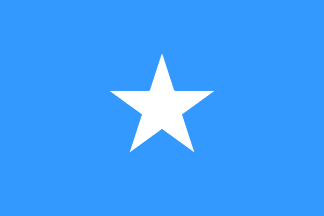Islamists ban smoking in southern Somalia
Here is yet another example of how the Islamists are spreading their Teliban-like rule. It should be noted that the harshest rules by the Islamic Courts seem to be implemented on cities in the south. This may be a punishment on clans in the south who resisted ICU rule before it took control in those areas. Yet whatever the reason, as poor Somalis die from floods in the countryside, we see here what is really important to these Islamist leaders.
====================
MOGADISHU, Nov 10 (Reuters) - Somalis caught smoking or selling cigarettes risk punishment in the south-central town of Jilib, residents said on Friday of the latest strict application of sharia law by Islamists who control much of the region.
Speaking at a public rally in Jilib, 365 km (227 miles) south of the capital Mogadishu, senior Islamist official Sheikh Mohamed Hassan issued the decree, which also banned the sale and use of leafy stimulant khat chewed by Somali men.
"From today onwards if a person is seen smoking, selling cigarettes, chewing khat or selling it he or she will be punished," he told the crowd amid chants of God is great.
"You will either be fined or arrested. We will start implementing sharia law."
The rise of the Islamists, who seized the capital Mogadishu in June, directly threatens the shaky interim government -- the 14th attempt to restore central rule in Somalia since the 1991 ouster of a dictator plunged the country into anarchy.
Many Somalis credit the Islamists for bringing a semblance of order to anarchic Mogadishu and other areas in southern Somalia under their control. But some accuse them of imposing strict Islamic law, such as outlawing music in weddings or whipping men with long hair, on those who hold more moderate religious views.
Jilib resident Osman Mohamed said Islamist officials in the agriculture-rich settlement of about 5,000 people were already implementing the law even before the sheikh's order.
"I saw Islamic troops burning cigarettes in the streets this week," Mohamed told Reuters by telephone. "This announcement will affect so many families because they are so many women who feed their children from khat proceeds."
One man who said he has smoked heavily for 25 years said the Islamists were infringing on his rights and should not just slap the new rule into place without giving him time to quit.
"I have been smoking for last 25 years," the smoker told Reuters by telephone. "I am now hiding in the bush to smoke. We know it is for our own good to quit smoking but we need more time. I now have to quit smoking slowly."
A khat vendor in Jilib, who also declined to be named, said she was unhappy with the ban because she supports her five children on her sales proceeds.
"We did not choose to sell khat for fun. They should provide us with paying jobs and then punish us if we start selling it again." she said. "This means my family will go hungry."
By Guled Mohamed









